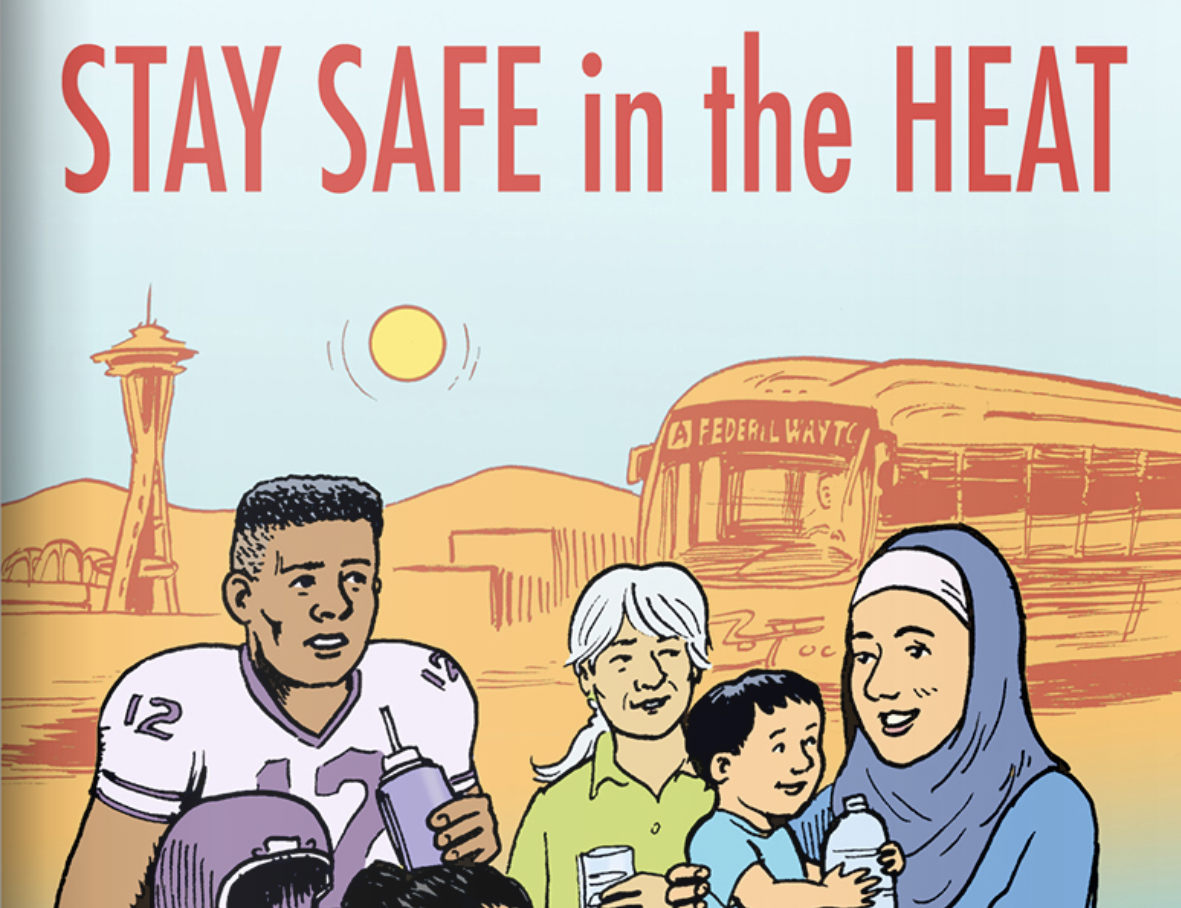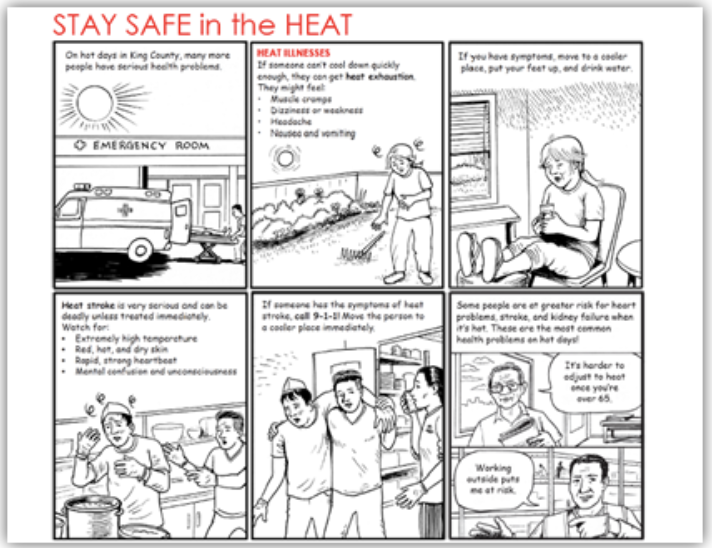Extreme heat is the leading cause of weather-related mortality in the United States, and leads to tens of thousands of ER visits and hospitalizations each year. Heat stress disproportionately affects the elderly, minority groups, occupations working predominantly outdoors, and people living in low-income settings. CEER works with local, state and federal partners, as well as academic institutions from across the country to understand the health effects associated with extreme heat, assess the capacity of public health institutions to respond, and improve public health and community preparedness for extreme heat events.
Risk Communication:
Extreme heat can be unhealthy for everyone, but some groups are at greater risk of illness or death when temperatures rise. CEER researcher Tania Busch Isaksen’s research on heat illness in King County identified specific groups at increased risk of heat-related illness, including older adults, children, people living with chronic illness, and outdoor workers. Public Health Seattle & King County partner Robin Pfohman and Meredith Li-Vollmer conducted focus groups and interviews with target populations to understand community members’ information needs and preferred coping mechanisms for extreme heat. The findings from both research projects informed the design of a comic drawn by artist David Lasky which featured many of Seattle’s diverse communities and the coping mechanisms they use to stay cool in hot weather. The comic was designed to clearly communicate heat safety messages, to represent King County’s diversity of communities, and to be approachable and engaging.

Stay Safe in the Heat
Guidance for preventing heat illnesses during hot weather, especially for people who are at higher risk, such as outdoor workers, people with chronic health conditions, and children. This downloadable document can be photocopied double-sided.
Learn More
King County - Hot weather: How to stay cool and safe
When outside temperatures are very high, the danger for heat-related illnesses rises. People's bodies are not able to cool themselves quickly enough, and they overheat.
Learn More
Heat Strategy Implementation Assessment:
With colleagues from the CHanGE and Boston University, CEER investigators are assessing the types and implementation of a variety of extreme adaptation strategies in major US cities.